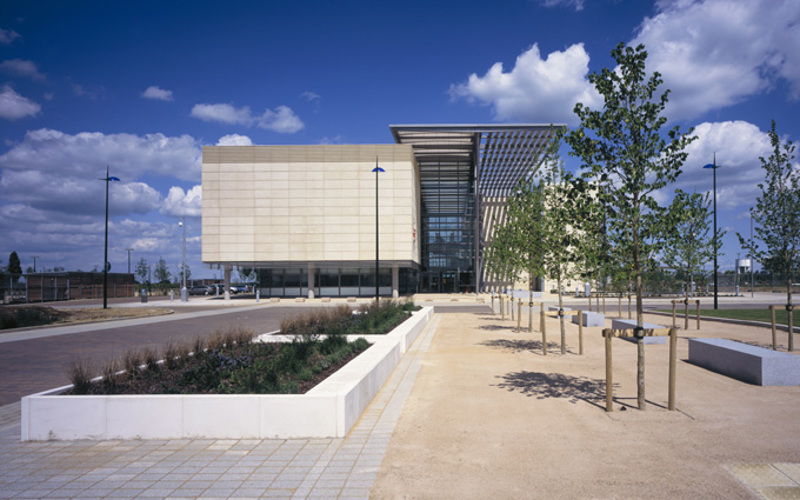New independent analysis of South Cambridgeshire District Council’s four-day week shows almost every service that was monitored either improved or was maintained.

Under a four-day week, Council staff are expected to carry out 100 per cent of their work, in around 80 per cent of their contracted hours, without reduction in pay.
A report from the Universities of Salford, Bradford and Cambridge highlights how 21 of 24 services have improved or stayed the same since four-day week working began at the Council in 2023. Those areas which saw a statistically significant improvement include:
- The percentage of calls answered by the Contact Centre.
- The average number of days taken to update Housing Benefit and Council Tax Support claims.
- The average number of weeks for householder planning applications to be decided.
- The percentage of planning applications (both large and small) decided within target or agreed timescales.
- The percentage of Council house repairs complete within 24 hours.
- The percentage of complaints responded to on time.
If performance variations caused by COVID are discounted, every single service monitored either got better or stayed the same.
The reports published today (Friday 4 July 2025) also show that the number of applications for jobs at the Council rose by more than 120 per cent during the four-day week. Beforehand, only around eight in 10 jobs advertised were filled – sometimes only five out of every 10. The number of workers leaving fell by more than 40 per cent - helping provide benefits to communities through greater stability of services.
During the four-day week, the Council has also cut the amount it has to spend over its budgets on staff. There has been a yearly saving of £399,263. This is mainly due to filling many vacancies permanently – rather than using expensive agency workers, which can be disruptive for residents as officers change.
Additionally, the four-day week has seen more staff say that they intend to continue to work for the Council, a key factor in reducing turnover and high vacancy rates. Mental and physical health and motivation have also improved.
This latest data also details how the four-day week has benefited disabled colleagues, those with medical conditions and carers.
The Council initially ran a three-month trial of a four-day week at the start of 2023 to help to ease acute recruitment and retention challenges. That trial was extended for one year. The Council then had to run a public consultation – which took place earlier this year – before being able to determine the next steps. Four-day week working has continued in the meantime.
An independent report from market research company DJS Research into that consultation outlines what responses showed about residents’ perception and experiences of services during the four-day week.
The results show people felt there had been no statistically significant difference in their experience of nine services during the four-day week. There was a perceived decrease in three services. Elsewhere in the survey, 45 per cent of people said they supported the four-day week – but there were a range of responses.
This comes as Local Government Association surveys have found that, nationally, people’s overall satisfaction with their local council fell from 72 per cent of respondents being ‘very’ or ‘fairly’ satisfied in 2012, to 62 per cent in 2022, and then to 56 per cent in 2024.
All this data will be discussed at the upcoming Scrutiny and Overview Committee meeting on Monday 14 July 2025. District Councillors will then decide if the Council will become a permanent four-day week employer at the Full Council meeting three days later.
As South Cambridgeshire District Council is the employing authority of two services which it shares with Cambridge City Council – Greater Cambridge Shared Planning and Greater Cambridge Shared Waste – these shared service colleagues have also been working a four-day week. Cambridge City Council is due to consider whether to support the continuation of the four-day week in these services at their Full Council meeting on Thursday 24 July. Any South Cambridgeshire District Council decision would be subject to the outcome of the Cambridge City Council discussions.
The Leader of South Cambridgeshire District Council, Cllr Bridget Smith, said: “We started this innovative trial due to significant recruitment and retention challenges. These were particularly acute for us, having to compete with higher private sector pay in an area of high employment and housing costs. There is now more consistency through lower staff turnover and improved health and wellbeing – and independent analysis by three universities has shown the majority of services have got better or been maintained. The results from our comprehensive stakeholder consultation this year – which measured the perception of our performance – shows many services had no statistically significant change. This is noteworthy - at a time when Local Government Association surveys show satisfaction with councils nationally is falling.”
South Cambridgeshire District Council’s Lead Cabinet Member for Resources, Cllr John Williams, added: “Before the trial we could only fill about 80 per cent of jobs we advertised – sometimes fewer. Many vacancies had to be covered by expensive agency staff for long periods, and we were overspending on our budgets due to this. Since we started working in this way, the number of job applicants has risen dramatically, and the number of leavers has reduced. This is saving hundreds of thousands of pounds for Council taxpayers, not only because we’ve filled posts with our own staff, but by reducing our recruitment costs. The four-day week has also been transformational for health and wellbeing – with more people saying they want to stay working here. It’s now for all District Councillors to weigh up all the evidence and decide how we should proceed.”
Cllr Cameron Holloway, Leader of Cambridge City Council, commented: “Since the start of the trial, we’ve been supportive of South Cambridgeshire’s progressive thinking on tackling the recruitment and retention crisis that affects councils up and down the country. We have always said that what’s most important for us is the standard of service that Cambridge residents receive through our shared waste and planning services.
“Throughout the trial, these services have been delivered to a consistently high standard. Over 99 per cent of household bins are collected on time, and the percentage of household planning applications being determined on time has increased from 75 per cent at the start of the trial to around 95 per cent at the end, which is no small achievement.
“We are also pleased to see the positive impact that the trial appears to have had on staff health and wellbeing.
“We are looking forward to reviewing and discussing the reports at our forthcoming Full Council on 24 July.”
Daiga Kamerāde, Professor in Work and Wellbeing at the University of Salford, said: “Our 27-month analysis shows that a four-day week can revolutionise the workplace while maintaining - or even improving - public service delivery. Most key performance indicators either remained stable or improved, providing robust evidence that challenges long-standing assumptions about longer working hours leading to higher productivity.”
View all news
